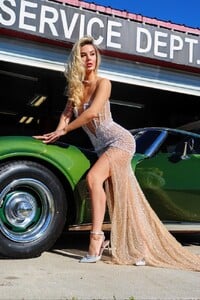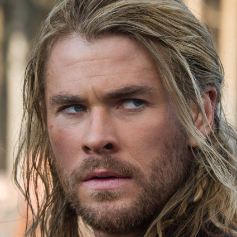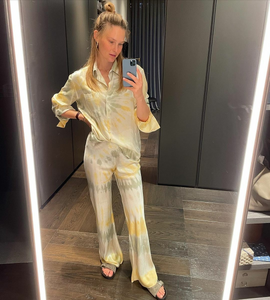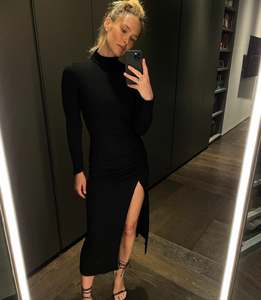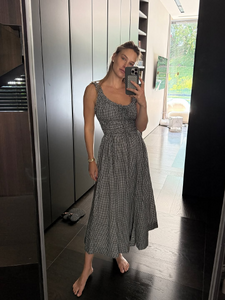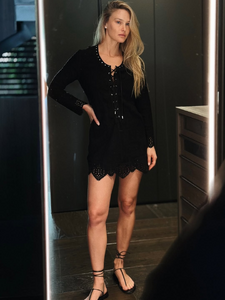Finally!! It has been ages. new photoshooting and interview❤️ Love the pics. https://www.esquire.com/entertainment/movies/a65619469/leonardo-dicaprio-paul-thomas-anderson-interview-2025/ Leonardo DiCaprio UnfilteredHow do you get the actor talking? Put him in a room with Paul Thomas Anderson. During hours of conversation, two era-defining men—on the record together for the first time—went deep. They cracked some jokes, too. A Leonardo DiCaprio performance is always an intense experience: Howard Hughes losing his mind, Jordan Belfort debasing himself, Hugh Glass surviving against all odds. We are watching one of Hollywood’s greatest of all time at work. His latest film, One Battle After Another, is no exception. DiCaprio plays Bob Ferguson, a washed-up revolutionary and dad to a teenage daughter, Willa, played by Chase Infiniti in her first film role. Opposite him are Teyana Taylor as the absent mom, Benicio Del Toro as the ally, and Sean Penn as the villain. One Battle After Another is a big movie—an action film with car chases, a spy-craft yarn with a clandestine agent who’s drunk and stoned, and a political thriller with reverberations for our interesting times. But at its core, the movie is a story about a father and daughter and what it means to show up for the people you love. It’s also very funny. The writer and director is Paul Thomas Anderson, whose films—like Boogie Nights, Magnolia, and There Will Be Blood—are operatic renderings of human frailty. The movies are visceral and often haunting. They can also be hilarious, and they’re always wildly entertaining. One Battle After Another is his first film with DiCaprio. Both men rarely give interviews, and their life and work are the subject of bottomless curiosity and speculation. This summer, they had two conversations: one in Leo’s kitchen, another over the phone. They recorded their talks and gave the transcripts to Esquire, which we edited and condensed. (Anderson also photographed DiCaprio for us in Los Angeles.) We gave them some prompts, some of which they indulged, others not so much. But the result is a rare glimpse into the minds of two of Hollywood’s most daring and original men. Paul Thomas Anderson: Any regrets? Leonardo DiCaprio: I’ll say it even though you’re here: My biggest regret is not doing Boogie Nights. It was a profound movie of my generation. I can’t imagine anyone but Mark [Wahlberg] in it. When I finally got to see that movie, I just thought it was a masterpiece. It’s ironic that you’re the person asking that question, but it’s true. Anderson: Why did it take us so long? DiCaprio: I know One Battle After Another has been on your desk for a long time. It was a personal story for you in a lot of ways and certainly pertinent to the world that we’re living in right now. But ultimately, wanting to do this movie was pretty simple: I’ve been wanting to work with you—Paul—for something like twenty years now, and I loved this idea of the washed-up revolutionary trying to erase his past and disappear and try and live some sort of normal life raising his daughter. Anderson: It’s a nice character, someone who starts out wanting to change the world on the far left but gets increasingly cranky and closed off as he gets older. Paul Thomas Anderson Jacket and shirt by Giorgio Armani. This article appeared in the Sept 2025 issue of Esquire subscribe DiCaprio: And lives in constant paranoia. It was fun creating a character that’s weirdly a hybrid of both political parties and beliefs—and certainly not Father of the Year. Anderson: No one can outrun what’s inevitable, which for him is to be a father and to have another generation come up from behind. So what’s inevitable is middle age. What’s inevitable is complacency. What’s inevitable is looking at the next generation with disdain simply because they’re not doing it how you think they should, which is just a code for “They’re not doing it like we did it.” And so what comes next is being cranky, no matter how liberal and rah-rah you were in your youth. When you get down to the mundane, daily battles of life, they just wear on you. DiCaprio: Especially if you’re living in secrecy. What are your options? You’re going to sit there and microdose and smoke pot and watch old revolutionary movies and not have a cell phone, right? Which became another huge theme in the movie too. Anderson: I’m going to ask you a question, and you’re going to answer as quickly as you can. If you didn’t know how old you are, how old are you right now? DiCaprio: Thirty-two. Anderson: Good answer. What you’ll have to do is investigate what happened when you were thirty-two, and then you’re going to discover and uncover why that was your answer. Here’s how that relates to your character in the film: He fell in love with a woman named Perfidia. She broke his heart into a million pieces, put it back together, smashed it again, put it back together, and smashed it once more for good measure. She left him stuck in time, unable to move forward. What’s inevitable with that broken heart is to sit around with it for a long time and stew in it. All you do is stay in one place. By the way, my answer was twenty-seven. Anderson: By the time I came to you, four or five years ago, the script was probably 80 percent there. I had never quite figured out the story’s policies on phones. DiCaprio: You were always into this idea of a no-phones world. Paul Thomas Anderson Coat, sweater, and trousers by Brioni; Oyster Perpetual 41 watch by Rolex. Anderson: I knew it had to be addressed. You brought me to the idea that Willa having a phone is a choice to rebel against her father’s wishes. Now that was a good idea. It’s always fun when that happens with a new idea, that immediate shift where you lean into something that you were entirely opposed to. The movie benefited from it. DiCaprio: It’s about the disconnection between generations. It’s about how this daughter and father relate to one another, and that we are living in a completely different world than the next generation. We think we understand it, but we don’t. This is how they communicate. Anderson: If you’re from a generation that either enjoyed or was driven mad by the mystery of wondering where somebody is or when they might call next, or thinking, I have to rush home to my answering machine to find out if somebody’s called, imagine if someone had said you could walk around with an answering machine in your pocket. To her generation’s point, why would I not let somebody know where I am every second of the day? I don’t understand what your problem is. Why wouldn’t you film yourself dancing? How could you dance and not film yourself? DiCaprio: I remember with my little sister and her friends, they asked, “What was it like?” I lived in the days where there was an answering machine, and when you had plans, you either needed to be there on time, or you’d call on a pay phone to check your answering machine to see if they left a message, to see if they were going to be late. And then you’d have to call their answering machine so they could check their answering machine. They were like, “You guys must have never had plans—how did you ever communicate?” There was a lot of waiting around; you had to stick to your word. Anderson: Do you remember when we were both starting, if you met anybody from the generation before us, and they were successful Hollywood players, they had answering services. That was like, Holy shit, they don’t have an answering machine; they have an answering service. DiCaprio: I tried to explain beepers. If it was stressful, you’d say your number and then 911911911. That means stop whatever you’re doing and call. Anderson: Well, beepers were generally for drug dealers. DiCaprio: That’s not true. We all had beepers. Paul Thomas Anderson Shirt by Zegna; sunglasses by Brunello Cucinelli. Anderson: I never had a beeper. My drug dealer had a beeper. DiCaprio: All my friends had beepers. They would click it on their jeans and you’d run around—beep beep beep—just look and like, Oh my homey’s calling, “Where are you?” Anderson: Here’s a question Esquire wants me to ask. “You turned fifty last year. Does it feel like a natural time for reflection?” DiCaprio: “You turned emotionally thirty-five last year.” Anderson: “Your age is fifty, but your emotional maturity is thirty-two.” How does that feel? DiCaprio: So they’re asking about age? Anderson: They’re asking if it’s a natural time for reflection. DiCaprio: Well, it creates a feeling like you have a desire to just be more honest and not waste your time. I can only imagine how the next few decades are going to progress. I look at my mother, for example, and she just says exactly what she thinks and wastes no time. She spends no time trying to fake it. Anderson: Yeah. Paul Thomas Anderson Shirt and trousers by Gucci; Oyster Perpetual 41 watch by Rolex. DiCaprio: Being more upfront and risking having things fall apart or risk the disagreements or risk going your separate ways from any type of relationship in life—the personal, professional—it’s that you just don’t want to waste your time anymore. You have to just be much more upfront. It’s almost a responsibility because much more of your life is behind you than it is ahead of you. Anderson: That’s a good answer. DiCaprio: What was it about this movie that made you want to dedicate twenty years to it? Anderson: Political films can be like eating your vegetables. There are many exceptions of great films that are political; however, right now the only thing I want to see is a story that I can relate to. And the only thing that matters is the emotional. The emotional comes from the story of a family. It comes from the way we love and hate. When films preach, I stop listening. It’s impossible to keep pace with the state of the world—this is why it’s best to focus on the things that never go out of style. You can figure out what never goes out of style by realizing what in a story is going to be the thing an audience really cares about. Our question is: Can a father find his daughter? Or: What does it mean to be a family? DiCaprio: You are considered a very art-house director. Would you call it that? What do you call it? Anderson: Well, there’s no need to be insulting. Paul Thomas Anderson Jacket by Tom Ford; shirt and trousers by Giorgio Armani. DiCaprio: No, what’s the term? You don’t do incredibly commercial movies, let’s put it that way. You are a writer, director. You have your own vision. What’s the term? Anderson: Box-office challenged? DiCaprio: No, you do appreciate big-budget movies, like a Marvel film. I’ve heard you talk about Terminator 2—about going to film school and somebody saying, “If you’re here to make Terminator 2, you’re in the wrong place.” And you said, “Well, fuck that. Terminator 2is a fucking great movie.” This, to me, is a Paul Thomas Anderson version of an action film. I was like, car chases? How’s Paul going to do French Connection? What is he going to do that we haven’t seen Michael Bay do and make it a Paul thing? Anderson: Twenty years ago, I started writing this story, and the kernels of it were basically just to write an action car-chase movie. I would go to this story every couple years. Sometimes I thought I would like to adapt Thomas Pynchon’s Vineland, a book written in the eighties about the sixties. But I was looking at it in the early 2000s, thinking of what the story means at that time. Cut to a whole other story that I had floating around that was about a female revolutionary. In other words, for twenty years I’ve had all these various strands, and in a way, none of them ever went out of style, because whatever seems to be happening politically seems to always be the same. Same shit, different year. DiCaprio: A lot of people say One Battle After Another was based on Vineland. I never read Vineland. You never spoke to me about it. There’s a lot of references to the book, but I since have read it, and I see some of the roots of where this story came from, and the whole idea of what happens to these revolutionaries in their post-sixties life. Paul Thomas Anderson Clothes and sunglasses, DiCaprio’s own. Scarf, PTA’s own. Anderson: Vineland was always going to be too hard to adapt, so I stole the parts that spoke to me and just started running like a thief. I guess that’s what all us writers do—we’re fucking thieves. I always liked the structure of Les Misérables. You have a wild and crazy first act, and then you settle into the story, and you must pick up the pieces of the wreckage or you must reckon with the choices you made in the first act. This is a very good dramatic structure. DiCaprio: There are themes of Star Wars and Terminator 2 in this. It’s interesting to see how you merged your vision of the zeitgeist—of what everyone’s talking about today politically—but with these very relatable themes for a larger audience. Anderson: Those mythical characters, at least the ones those Star Wars characters are based on, have been around forever, and they never go out of style. It is the classic “nothing changes.” The story of a chosen child and opposing forces in pursuit of her magic—this is an oldie but a goodie and certainly one that fits these times. Once you settle into a story that works, the next question is the tone, and our tone ended up reflecting everyone’s character. Our tone reflects the absolute absurdity of human nature. DiCaprio: My character is not your typical heroic Terminator-type character that has any superpower, any special ability, but he’s just relentless, you know? Anderson: Well, that goes back to— DiCaprio: The Bad News Bears. He’s in The Bad News Bears of modern-day dad heroes. Anderson: That’s right—he’s got a lot of Walter Matthau from Bad News Bears. When I watched the Mission: Impossible films, they usually start out with a code that Tom Cruise has to give back and forth. I would daydream, What would happen if Ethan Hunt forgot that code word just once? Would the other end of the line say, “It’s okay. I know you’re Ethan Hunt. Let’s just get on with it.” Or would they say, “Sorry, I know you’re Ethan Hunt, but I still need the password.” Paul Thomas Anderson Jacket, shirt, and trousers by Giorgio Armani; loafers by Dior Men; socks by the London Sock Company; Oyster Perpetual 41 watch by Rolex. DiCaprio: We had a lot of talks about how to create a heroic character and bring a sense of reality and not have it be the typical choices that we’ve always seen. You said to me, It’s in the relentless pursuit of wanting to protect his daughter, not giving up, being there for her. It’s a story about a father and daughter and what you do in those positions, even if you’re up against all odds. There was some point in which we were talking about him going to John Wick extremes. I was like, No, give me a shittier gun, or what if there is no gun? Eliminating the violence from his character was the key to unlocking him. Anderson: I also thought it was interesting that we never quite knew exactly how it was going to end. But I like where we landed. The dramatic center of it was for Willa to say, “Who are you?” Saving the day was you saying, “I’m your dad.” DiCaprio: And that’s what the story’s really about. Anderson: That’s heroic. That’s more heroic than shooting somebody. Saving her is saying: “I’m the guy who’s been here the whole time. I’m your dad.” Anderson: If it’s a Saturday and I’m flipping around thinking, What do I want to watch? chances are I’m going to land on something that has some kind of action-adventure element to it. The first thing that pops to my mind is Midnight Run. I’ve been dreaming of trying to make a film as fun as Midnight Run since I first saw it. DiCaprio: A masterpiece. Anderson: I saw it three or four times the week it came out. It’s the high-water mark of a great film for a broad audience. Usually we shove an action movie into a section of the room that disallows us from taking it too seriously. There are exceptions, like Mad Max, but for the most part we don’t let our action films cross with our more dramatic stories, as if you can’t have good acting and someone driving a car or shooting a gun. But Midnight Run is the total package. DiCaprio: I was recently talking about that movie, and a very famous comedian was like, “That may be the greatest fucking two-man comedy ever done. It’s brilliant.” When my dad was telling me about what acting is, he took me to the theater in Burbank to watch Midnight Run. He said: “You want to be an actor, son? That’s the guy right there—that’s acting.” Anderson: Do you ever watch any of your old movies? Paul Thomas Anderson Shirt and trousers by Loro Piana; Oyster Perpetual 41 watch by Rolex; sunglasses by Brunello Cucinelli. DiCaprio: I rarely watch any of my films, but if I’m being honest, there’s one that I have watched more than others. It’s The Aviator. That’s simply because it was such a special moment to me. I had worked with Marty [Scorsese] on Gangs of New York, and I’d been toting around a book on Howard Hughes for ten years. I almost did it with Michael Mann, but there was a conflict and I ended up bringing it to Marty. I was thirty. It was the first time as an actor I got to feel implicitly part of the production, rather than just an actor hired to play a role. I felt responsible in a whole new way. I’ve always felt proud and connected to that film as such a key part of my growing up in this industry and taking on a role of a real collaborator for the first time. Anderson: I can stop and watch it anytime. DiCaprio: We should talk about Adam. [Adam Somner was a British-born first assistant director who worked with Martin Scorsese, Steven Spielberg, Ridley Scott, and Anderson before his death from cancer last year. He is credited as a producer on One Battle After Another.] Anderson: Sure. DiCaprio: There was nobody like him. The fact that this man would just go to the utmost extremes to somehow bring everything into order was one of the most magical things I would see in my whole career. And he worked with the greatest directors in the world, and they trusted him. It allowed me to watch you or somebody like a Marty juggle so many different departments with so many different questions, which is why I don’t have a powerful urge to direct. Because I’m just trying to figure out what is this line going to be. I would go into a spiraling vortex for hours about how to say that line. I know we get emotional talking about him, but there was just absolutely no one better. Anderson: Without question. As it relates to you and me, we had wanted to work together for twenty-five years or something like that. It was always going to be the right time when it was the right time. But Adam, since he’s been working with you, has been saying, “Get going. You guys are gonna fucking love it. I’m telling you because I’ve been with you both independently. Now’s the time!” DiCaprio: I didn’t know that. Paul Thomas Anderson Shirt by Zegna Anderson: It was nice that his match of us together got to come true. There was a pretty large waiting room of customers to get the services of our man Adam. I’d like to think I was at the front of the line, but we all know Steven was, as Steven is the king. But the joy of giving him the script and waiting for his feedback and approval, which was always supportive, but he was never a yes-man. He is not going to tell you it’s great if it’s not great. That is worth everything. You’re surrounded by your own insecurities and your own confidence. When one rises, when the other one falls, to have somebody who’s so steady and secure and has good taste on top of talent, well, it’s all you can ask for, and that’s what he was. But he was also somebody who knows how to set a table for an actor, keep it quiet, keep it cool, let them do their work. It’s why Daniel Day-Lewis would fucking not be on a set without Adam Somner keeping it cool, you know? It’s why you feel safe. DiCaprio: I remember listening to Marty’s story about Adam when we were doing the orgy sequence in Wolf of Wall Street. We had an intimacy coordinator there for the first time in cinema history, I believe, because it was a full-on Caligula orgy on a 747. Adam worked with the intimacy coordinator, and it was like a dance. Adam would say, nasty bit, nasty bit, hover over here, nasty bit, nasty bit. For Marty, it was one of those Chia Pet things, everything was already grown for him. Anderson: I don’t know what it’s going to be like when we have to go to work again without him. It’s going to be a big gaping hole. DiCaprio: Chase [Infiniti] was incredible. Anderson: Yes, she was. DiCaprio: We did an extensive audition process, and there was some point at which you said, “This is the one.” And I said, “Yes, this is the one.” And this was her first movie. Anderson: We started with filming your scenes with her. I remember thinking, I’m really going to keep an eye on her today; she must be very nervous. And she wasn’t nervous—maybe she was, we all probably were. But the point is, she was so instantly a professional. We shot the final scene at the beginning. I think we all collectively said, “This will never be in the movie. We’re going to go make the movie, and we’ll come back to this; we’re never going to get anything good here.” And lo and behold, I think we got something quite magical. DiCaprio: That final scene—it’s very, very moving. And then Teyana [Taylor] was just absolutely fantastic. What an ability to improv and embody that character. Anderson: Teyana was best when you just give her the green light to cut loose. Just let her cook and make sure you’re filming it right. That’s the best way to do that. DiCaprio: And Sean, of course. Anderson: Sean Penn, I mean, he’s just old enough that, for us starting out, he was this hero. You’re like, Wow, that’s an actor, that’s a man. DiCaprio: After knowing him so long, I’m just so happy he got to have a character like this, because it wasn’t going to be the traditional way to play him. You knew Sean was going to bring some element that was askew. I only got to do one scene with him. Anderson: It’s just one in the supermarket, right? I will always remember that as a great day, when you kept looking around, asking, “Are we going to close this supermarket down?” Me saying, “No, we’re just going to shoot.” And then the cashier at the checkout, in the middle of your scene, takes out her phone and starts taking pictures of you. That made me laugh. I guess she got bored taking pictures after a while. DiCaprio: Do you like the idea of controlled chaos in what you do? Paul Thomas Anderson Jacket, shirt, and trousers by Giorgio Armani; loafers by Dior Men; socks by the London Sock Company; Oyster Perpetual 41 watch by Rolex. Anderson: Yes. I don’t think it’s good all the time. You have to pick and choose when you think it’ll be appropriate. There are certain moments when you’re like, I want to feel the unknown entering. We shot a scene in Punch-Drunk Love of Adam Sandler on a telephone calling Emily Watson in a hotel room. He’s standing in a street in Honolulu, and he calls her, and it’s fantastic. But when we were standing there, I said, “Well, it’s good, but it’s a little low energy, and I don’t really know what else I would do to fix it.” As we were wrapping up for the day, someone said, “You can’t leave your truck here—tomorrow is this huge Japanese American Parade day.” And of course we say, “Wait a minute, there’s a parade going on? We could put the phone booth right there and shoot in the middle of a parade? Let’s come back.” That was the kind of thing where there’s something larger happening than your film. Sometimes you’re going to fail. But there are other times where you can catch lightning in a bottle. Adam was supposed to get quite angry at his sister on one of these phone calls, and he was kind of getting there, but not really. These drummers are coming down the road making this tribal banging at the same time he’s supposed to reach this peak. The music had to affect him. He fucking launches into this fantastic take of anger; he’s lost his mind. DiCaprio: It’s the “I’m walking here!” moment, right? Anderson: That’s right. We got quite lucky with some of that stuff on this film. We shot underneath a freeway underpass, forty feet from the border of Tijuana, while we were raiding the immigration camp. I couldn’t tell the real immigrants who were sneaking across the border from the background artists that we’d hired. No one could. I’d watch them walk in the back of a scene and think, Is that a background cross or is that somebody really crossing? And it would be people that were really crossing the border. DiCaprio: Tell me about the line from Benicio’s character. About freedom. Anderson: It’s a Nina Simone line. An interviewer asks, “What is freedom to you?” And she says, “I’ll tell you what freedom is. No fear. That’s what it is.” That wasn’t in the script, but the deeper we got into shooting, that kept reverberating in my mind. Don’t be afraid. Keep going. It became perfect to throw it into Benicio’s mouth. And as a philosophy, it certainly holds true for me. Freedom is no fear. Let’s hope we can all get there. DiCaprio: What do you make of the state of the movie business today? Anderson: I’m just trying to rapidly live in reverse to hold on to any shred of the Olden Times that’s left. This is called denial and nostalgia—wish me luck. I’m only half kidding. The irony is that the best part of life is the constant forward momentum. It only moves in one direction, so hop on and hold tight. Every “sky is falling” panic has been screamed and screamed again. Best to remain calm, keep your head down, and dedicate yourself to the work at hand. The rest is just noise. I love our business, and I’ve seen it flourish and eat itself and then turn around and grow strong and then make the same mistakes it made years earlier. Through it all, it’s still standing. Or in other words, “You never got me down, Ray.” Paul Thomas Anderson Shirt and trousers by Zegna. Oyster Perpetual 41 watch by Rolex. Scarf, PTA’s own. DiCaprio: Raging Bull. Anderson: This is not me talking; this is Esquire. “You give so much to every role you play, once filming wraps, what do you do to come down from it?” DiCaprio: Sheesh. Anderson: How do you recover? What is what? What does a jet-setter like yourself do? DiCaprio: Ironic, because I’m on a yacht off Croatia right now. Anderson: I’d expect nothing less. I’ll rephrase the question: Do you get the blues after filming? Because I sure do. How do you avoid it? DiCaprio: I think I’m good at it because I take a lot of time off between films. I do things more sparingly, which means you’re anxious to get back to your real life once you’ve finished filming. Life goes on hold when you’re filming. Everything stops and gets put on the back burner in your real life. I might be more concerned if I worked too much. To go from film to film, I would be scared about what do I have to come back to? I’m very fortunate for that. Anderson: That makes sense. Sometimes when a film starts, it’s very hard to get used to how little structure there is. How far from normal it is. The lack of sleep, the circus lifestyle of it all. And then, when it’s over, a hundred days later, it’s very challenging to return to the structure of everyday life. DiCaprio: It’s much more difficult for directors, in my mind. We get to go home and bounce back into our normal rhythm and in a much different way until promotion time. Anderson: Which leads me into the next question, which Esquire wants me to ask: “What do you worry about? What keeps you up at night?” Besides saying dumb shit while you’re promoting your movie. You know what, don’t answer that.
esq090125leonardodicaprio-003-6894ce7b387df.avif
esq090125leonardodicapriodig-004-6894d0740f93c.avif
esq090125leonardodicapriodig-006-6894cceed6daf.avif
esq090125leonardodicapriodig-007-6894ced745631.avif
esq090125leonardodicapriodig-009-6894cddbb9860.avif
esq090125leonardodicapriodig-011-6894cf498d2be.avif
esq090125leonardodicapriodig-012-6894d02da77fb.avif
esq090125leonardodicapriodig-014-6894cfcfc3404.avif
esq090125leonardodicapriodig-016-6894d0eb4c8dd.avif

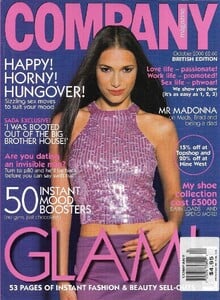

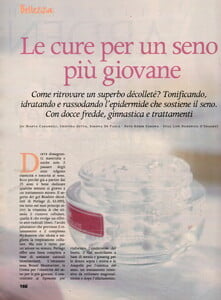
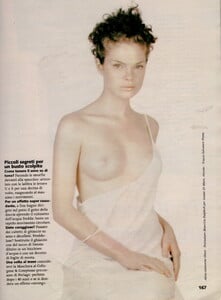
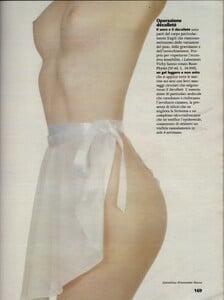
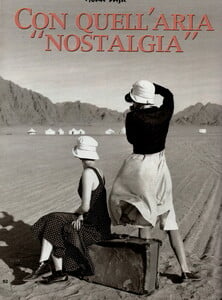
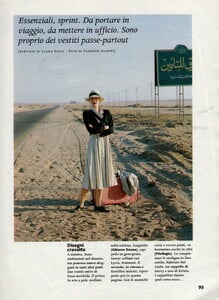
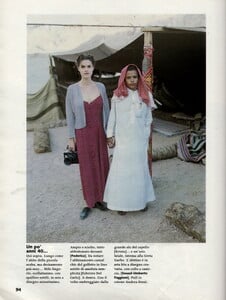
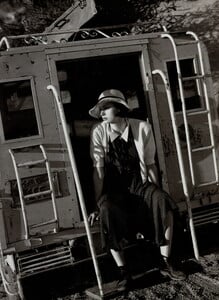
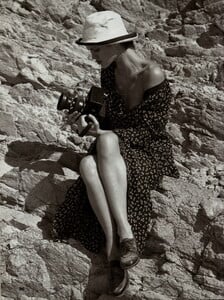
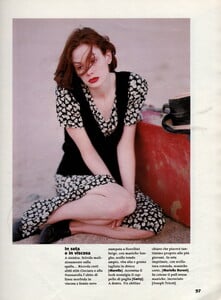
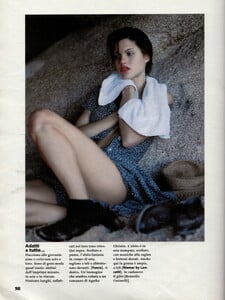
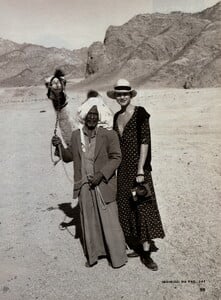
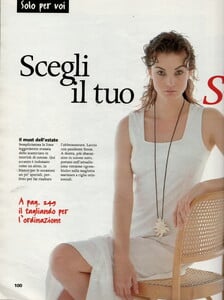
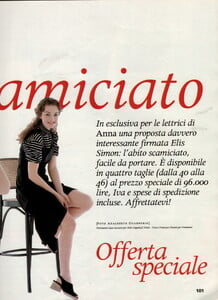







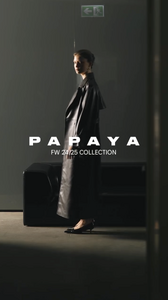
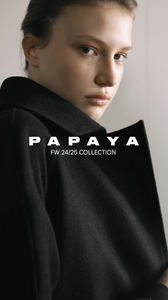
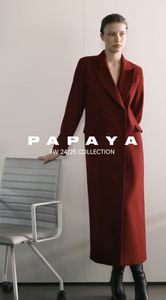
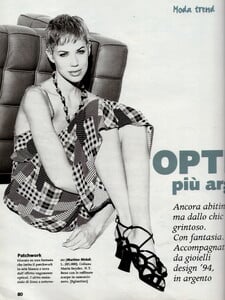
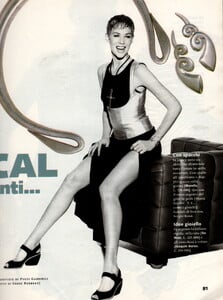
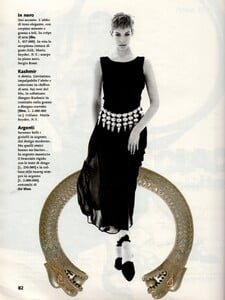
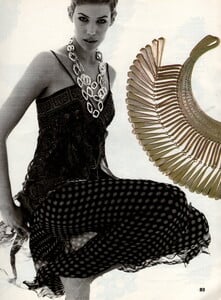
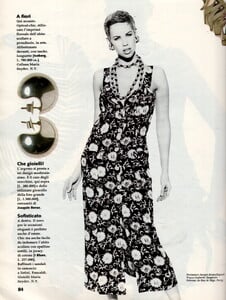
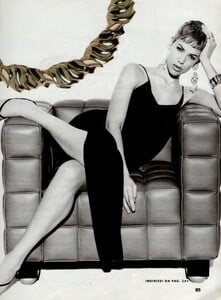





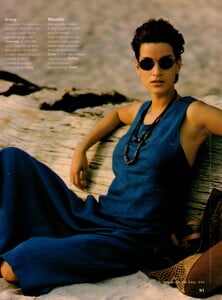

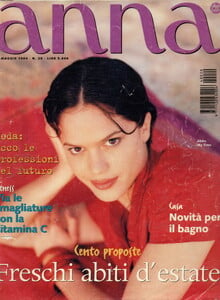
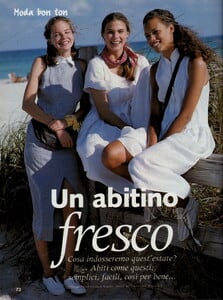
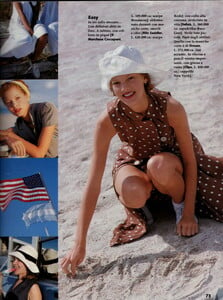
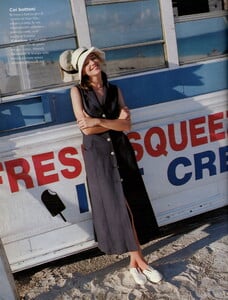
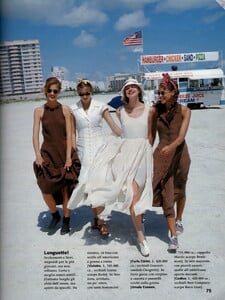
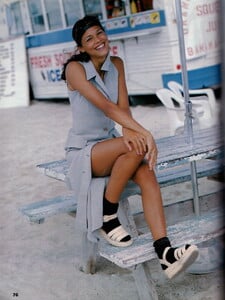
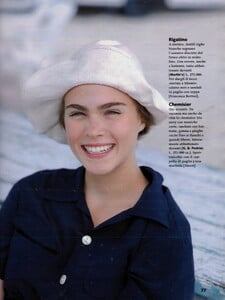
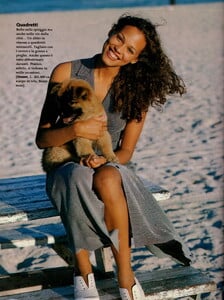
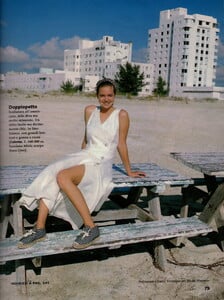
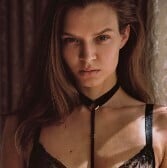




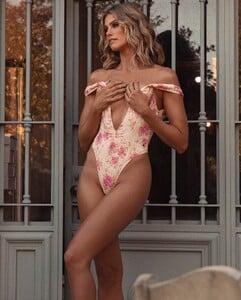



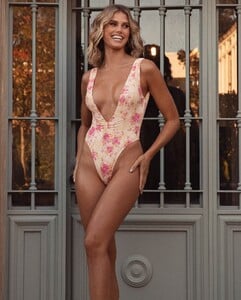




copy.thumb.jpg.e3bb834c0bcc070cadbd919ffdc2be74.jpg)
copy.thumb.jpg.493a7312e7fb44657be258c401a61903.jpg)
copy.thumb.jpg.90b9e34a6dae4b0522f8736b75adbbeb.jpg)
.thumb.jpg.6b4af0c20b6f2d3bb9e04d2336eb87fb.jpg)
.thumb.jpg.a264b408a38683a08a05efd1b8941f4b.jpg)



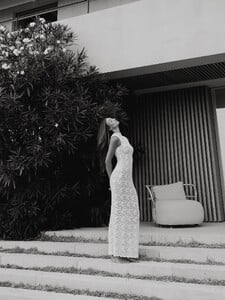


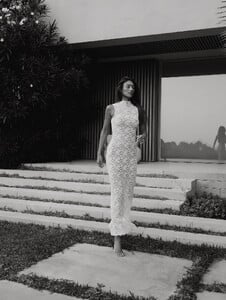

.thumb.jpg.0520c1dd04603077a76de1e39e896845.jpg)
.thumb.jpg.b3eec37c55e350eb5b1ef2f1f7e28a13.jpg)
.thumb.jpg.eaf8a857893871f4dbc7283557ce8bcd.jpg)
.thumb.jpg.c15afaaaf8d31ee25814bdd0b1cf5dfa.jpg)
.thumb.jpg.0f2da2ccc08008444bc93921a54baedc.jpg)
.thumb.jpg.aac7e12a60d541ececc53a06b38bf673.jpg)
.thumb.jpg.0efd77fa27a7da151fbea7453b91d239.jpg)
.thumb.jpg.5975b545a3eae7ae047e7d2f4243093b.jpg)
.thumb.jpg.bb496442f1940039bd95972ad7aa50e3.jpg)
.thumb.jpg.a17b279237e538e18834db55a7cd92b6.jpg)
.thumb.jpg.97b895a1a1eb3253e4295a5671b78bac.jpg)
.thumb.jpg.61cc997975dde2cb105559d1ced08a31.jpg)
.thumb.jpg.898dc2dd2a00e5dc19b77bdcf4198578.jpg)
.thumb.jpg.049c0954a1c6e2ec7452b7cec245a394.jpg)
.thumb.jpg.1de2b212a358b11beae1006188bffe72.jpg)
.thumb.jpg.9c178ab6b9f5abbd5106bbea1f93e2cd.jpg)
.thumb.jpg.50e756a0aaeb5a8a8e412dde4a4af4cd.jpg)
.thumb.jpg.95dab5205f930e494b1e38c777212ed1.jpg)
.thumb.jpg.78bd48d9c092b59104b2f3bb6deec45c.jpg)
.thumb.jpg.b4d40b7128e6ff15779f997812d7c0ac.jpg)
.thumb.jpg.df1359d40b13bf9ceb4f99b1f31afae0.jpg)
.thumb.jpg.1302bfd96bec57ccd5fd16c23463080a.jpg)
.thumb.jpg.351d9b69370c5ccba648971cc3e2f6b0.jpg)
.thumb.jpg.ff3b2c173ad0470990ca66509550aa51.jpg)
.thumb.jpg.35704ce1b91c06b345ea92a31af66500.jpg)
.thumb.jpg.8ba58870fc7da085727328a1703ede6d.jpg)
.thumb.jpg.56424116f65f623cf91013580ed0f4b9.jpg)
.thumb.jpg.0af63b9cfa1da372ac8c4be47c54568d.jpg)
.thumb.jpg.0d0de60d3fcf327f6c6b8337e4b6c5a9.jpg)
.thumb.jpg.e60776d06f7c4ba58105181d0b1bc3a0.jpg)
.thumb.jpg.042fec98d65b7cbd2eb37fd696152a1c.jpg)
.thumb.jpg.3dd44a06a1709aae447a6d1f573e72f5.jpg)
.thumb.jpg.ed8fcd826e7e436ca3ee204d88a9cf45.jpg)
.thumb.jpg.5e984b6ed9215032fd7065e75a68934c.jpg)
.thumb.jpg.8157bfb85f0b8d920ab9ca2a2bd62333.jpg)
.thumb.jpg.35dd3261c442bbf5e018be08e642cd62.jpg)
.thumb.jpg.78827b97570b306188f318f6e59282e0.jpg)
.thumb.jpg.da7babbc9b4fb7bab8deb69c516c0444.jpg)
.thumb.jpg.715457953d9c8b6df9ba5b9a5f07301a.jpg)
.thumb.jpg.db146d307bd63c9f604587f1b5c74fee.jpg)
.thumb.jpg.96230ece04c871708d50dd96ca582573.jpg)
.thumb.jpg.98e7653c582f4a6b436ffa9566171bc5.jpg)
.thumb.jpg.bdbaf81f1278c8e33827475788c41cf7.jpg)
.thumb.jpg.7a9939c240a6f4ea077b68773ae2c874.jpg)
.thumb.jpg.3798af42379136b257088cdd4fadd729.jpg)
.thumb.jpg.d945595861aa4d386ffeb011874f7684.jpg)
.thumb.jpg.3917bbce284997be72174f65b4770712.jpg)
.thumb.jpg.cdd5311977538b0279651837abcd30c9.jpg)



.thumb.jpg.eae6bbd9339e2e2fa94f856927cb5eeb.jpg)
.thumb.jpg.9baddf6e39b183a5fbf64b3db72cc076.jpg)
.thumb.jpg.f84521f4e6c8bceb88a08766ad598d01.jpg)
.thumb.jpg.f2c99690f3022b1a67b5cd698b64bac1.jpg)
.thumb.jpg.da03ef4a0583eb4be79a3caefcc8ab4e.jpg)




